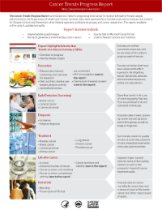 BD2K is a trans-NIH initiative that funds research and training activities supporting the use of Big Data to advance biomedical research and discovery. This includes efforts in enhancing training, resource indexing, methods and tools development, and other data science-related areas.
BD2K is a trans-NIH initiative that funds research and training activities supporting the use of Big Data to advance biomedical research and discovery. This includes efforts in enhancing training, resource indexing, methods and tools development, and other data science-related areas.
Yesterday, the NIH posted a new funding opportunity that seeks to accelerate the availability and re-use of biomedical research data by transforming the processes used to curate digital data assets. Applications should propose the development of new tools and approaches, or build upon existing open-source tools and pipelines in order to enhance the efficiency, control the costs, and improve the quality of digital curation. Letters of intent are due on November 1, 2016. For more information, see: Big Data to Knowledge (BD2K) Enhancing the Efficiency and Effectiveness of Digital Curation for Biomedical Big Data (U01).
Also, check out another funding opportunity recently announced under the BD2K initiative: Big Data to Knowledge (BD2K) Community-Based Data and Metadata Standards Efforts (R24). This opportunity focuses on making data more FAIR (Findable, Accessible, Interoperable and Reusable) by promoting and facilitating the use of data and metadata standards. Letters of intent are due 30 days before the application due date of October 19, 2016.

